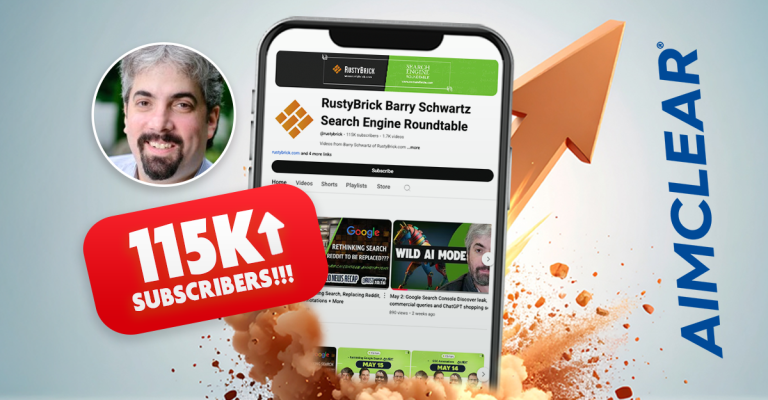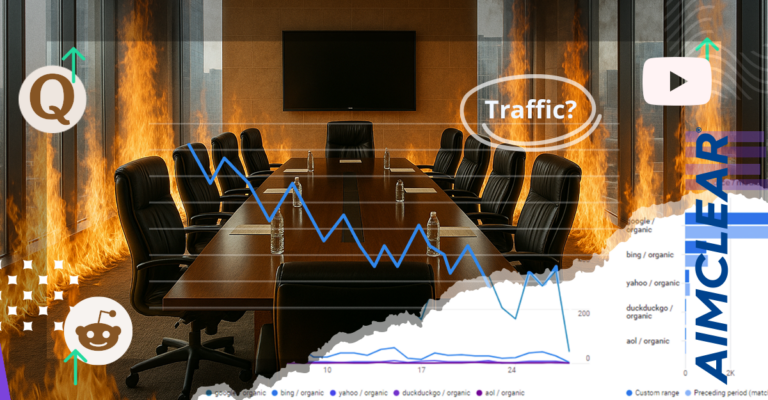
Conference chair Andrew Goodman was kind enough to answer a few questions about the upcoming SearchEngineStrategies event, as well as share regarding his extensive background in the industry. Everything this guy shares has a serious helping of depth and knowledge–easy to understand given his path from academia to the web.
| What was it about the search industry that drew you away from your career in academia?
In founding Traffick.com in 1999, there was a very interesting intellectual driver there for me as a political economist. The “portal” companies as they were then, I felt were becoming game-changing monopolies of historic proportions. In Canada long ago (1980) we had a study (a Royal Commission) called the Kent Commission on the concentration of ownership in the newspaper business.
Seeing the potential the big Internet companies had to become access points for all digital life and business revolving around it, I had to figure this Kent Commission stuff was chickenshit by comparison. Believe it or not, it was controversial when two media companies decided to quietly collude so that one would fold its newspaper operations in Winnipeg, and the other, in Ottawa. The hand-wringing about monopolies in media is certainly not out of line in any era, but in 1980 people really had no idea how much was about to change.
In 1999 I certainly didn’t predict that Google would come to dominate everything, but I figured the 2-3 companies that did win would have been basically fulfilling what the initial purpose of that race for dominance was: gaining monopolistic advantages. I got bored of that theme only because I had to keep busy making money in the same industry I was critiquing. 😉
Back to unmet needs: yep, it was a gold rush in 1998 during Bubble 1.0. You either get the gold or sell the shovels, and that pretty much summarizes many industries, including ours, at different points in time. Undignified, huh? Perhaps that was why I left the academic world: dignity bores me.
| Could you give our readers a brief overview of how you began your journey in the search industry and some of the barriers you may have encountered?
The barriers that surprised me involved every little bitty detail of running a business: you name it. But I’m glad I surmounted a good many of them on my own, although it would have been easier if family or friends had been able to recommend tools and processes. A lot of the best tools were brand new. We were lucky to find a lot of great stuff, and we had the time to explore.
You hear today about how low the cost is to start a new business. Very true. We found earlier generations of many of the tools people now use to facilitate that, and this was nearly ten years ago. Meeting new entrepreneurs who come out of big companies, I long to teach them not to spend money on all kinds of silly things. 🙂
Given that I came to the table with little full time work history, student loan debt, and few assets, it took five years to develop a good relationship with my bank. Now, I love them and they love me. 🙂 Little stuff like that can get you down, but it’s nothing many entrepreneurs haven’t faced.
| You are a consensus expert in search, especially in regards to Google Adwords, what other area of search do you hold a soft spot in your heart for?
Most of all? Today, everyone attending doesn’t have a close speaking relationship with Danny Sullivan. : Everyone calls him “Danny”, of course, so that’s almost like knowing him personally. The number of experts in our field has to have grown a hundredfold since then. It’s become chaotic.One thing I lament is the loss of a research and information science oriented track. Marketers may have displayed such a lack of regard for that side of search that it’s no longer economically feasible to hold such tracks, and also, marketers plain scare off the scientists. 🙂
| What sorts of “special moments” can we expect at SES Toronto 2009? What distinguishes it from any other in North American conferences?
Did I mention our banks don’t fail?
| One of the sessions you will be moderating has to do with whether or not search engines have the bandwidth to keep up with the growth of digital information. How do you see the future Andrew?
There is an upper limit to people’s interest in accessing new information, of course. But we see a linear progression in its availability.
There seems to be an under-appreciation, though, for how hard it is to run a search engine that purports to cover this animal we call the World Wide Web. Any source of data or information has its own rules. But the rules we give to people throwing content into this maw are pretty minimal; we expect little of them, so it becomes, by definition, an “adversarial” information retrieval environment where everyone competes to get noticed.
Search engines can only keep up with that by using certain shortcuts, by changing the discourse, the set of assumptions we make about what counts as a search result or a method of finding what we need.
You can see that a whole bunch of the apps on, say, an iPhone, delight that user right away. There isn’t that sense of having to wade through inconvenient stuff to get to what you want.
So… marketers definitely need to be aware that the old game of Ten Blue Links — or any game that makes it hard on search engines to delight users — is rapidly coming to an end. Technology companies will redefine the rules and structures of various databases and try to convince us that what we see is delightful.
To put it simply: if the notion of a spammer interfering with your weather forecast app on your BlackBerry is an oxymoron to you, then why wouldn’t the notion of spammers interrupting you in other things you use, including contemporary search engines, also become an oxymoron? Search engines will be under no obligation to “keep up” with the flow of information entirely, they’ll just be obliged to help and delight consumers in what is admittedly going to be a more variegated and complex info landscape.
Black hats: take cover.
| You’ll be speaking at the Copywriting: 45-Minute Boot Camp which touches on the skills needed for effective copywriting in the search marketing world. What do you see as one of the most important skills that cross all segments of copywriting?
Oh, where to begin? If you can, try my old favorite (for atmosphere as well as food): the Boulevard Cafe on Harbord. Argentinian.








